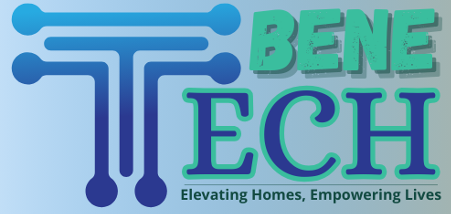Did you know 50% of job seekers send their resumes on mobile devices? But, the mistake rate for uploading resumes can hit up to 10%. If you’re looking for a fulfilling job in behavioral health technology, the application process might seem tough. But don’t worry, the opportunities are vast, and the rewards are great.
Behavioral health technicians are key in helping patients and healthcare teams in mental health, addiction, and wellness settings. With more demand for digital mental health tools and new solutions, now is the perfect time to check out this exciting field.
Table of Contents
Key Takeaways:
- Discover the rewarding career opportunities in the rapidly growing field of behavioral health technology.
- Learn how to navigate the application process, including the common challenges of resume submission and file type limitations.
- Gain insights into the essential qualifications, skills, and certifications required to excel as a behavioral health technician.
- Explore the diverse work environments where behavioral health technicians can thrive, from mental health facilities to addiction treatment centers.
- Understand the salary expectations, career growth, and the significant impact you can make in this vital healthcare sector.
Overview of Behavioral Health Tech Jobs
In the world of healthcare, behavioral health technicians are key players. They help people dealing with mental health issues. They work with nurses, psychologists, and psychiatrists to support patient care and treatment.
What Is a Behavioral Health Tech?
A behavioral health technician helps patients with mental health or substance abuse problems. They watch over patients, give out medicines, and make sure the environment is safe and helpful.
Key Responsibilities of Behavioral Health Technicians
Behavioral health technicians do many things. Here are some of their main tasks:
- Watching and writing down how patients act, feel, and do
- Helping with medicines as ordered by doctors
- Offering emotional support and advice to patients
- Helping with group therapy and fun activities
- Working with the team to plan and carry out treatment plans
- Making sure patients are safe and secure in hospitals
The Growing Demand for Behavioral Health Professionals
More people are looking for help with mental health, which means more jobs for mental health workers. This includes telepsychiatry positions and behavioral intervention tech roles. As e-mental health careers grow, so does the need for behavioral health technicians to support patients and help mental health experts.
| Skill | Proficiency Level |
|---|---|
| Patients | 19% |
| Behavioral Health | 17% |
| Crisis Intervention | 6% |
| Social Work | 6% |
| CPR | 5% |
| Vital Signs | 4% |
Qualifications and Skills Required
To succeed in behavioral health tech, you need a mix of education, skills, and certifications. Let’s explore the key qualifications and skills for a fulfilling career in this field.
Essential Education for Behavioral Health Tech Jobs
A solid educational base is key for a career in behavioral health tech. Many jobs require a bachelor’s degree in psychology, social work, or related fields. These degrees teach you about human behavior, mental health, and how to help people.
Learning about data analysis, digital health, and mobile app development can make you more valuable. These skills are in high demand.
Important Soft Skills for Success
- Exceptional communication skills to effectively engage with patients, families, and interdisciplinary teams
- Empathy and emotional intelligence to provide compassionate care and support
- Critical thinking and problem-solving abilities to navigate complex behavioral health scenarios
- Collaborative mindset to work seamlessly with social workers, therapists, and other healthcare professionals
- Organizational prowess to manage multiple tasks and ensure patient care continuity
Certifications That Can Enhance Your Career
Relevant certifications can make your resume stand out. Look into certifications in crisis intervention, substance abuse counseling, or specific therapies like CBT. Training in digital health technologies, like mobile apps and digital phenotyping, can also set you apart.
| Certification | Description |
|---|---|
| Certified Behavioral Health Technician (CBHT) | Demonstrates proficiency in providing support and assistance to individuals with mental health or substance abuse issues. |
| Certified Psychiatric Rehabilitation Practitioner (CPRP) | Focuses on the skills and knowledge required to support the recovery and community integration of individuals with mental illness. |
| Certified Addiction Counselor (CAC) | Recognizes expertise in the assessment, treatment, and prevention of substance abuse and addiction disorders. |

By combining your education, soft skills, and certifications, you’ll be ready to thrive in behavioral health tech. These qualifications will open doors to exciting career opportunities. They’ll also make you a valuable asset in using technology to improve patient care.
Potential Work Environments
Behavioral health technicians are key in mental health and substance abuse services. They work in many places, like hospitals, clinics, and online platforms. Their skills help in many areas, from direct care to using technology for therapy.
Settings Where Behavioral Health Techs Work
- Hospitals and psychiatric facilities
- Outpatient mental health and substance abuse clinics
- Residential treatment centers and group homes
- Virtual care technology jobs in telehealth and mobile health applications
- Community-based organizations and non-profit agencies
- Research laboratories and academic institutions
The Role of Behavioral Health Technicians in Different Facilities
In hospitals and clinics, they help with patient checks and therapy activities. In residential settings, they teach daily skills and lead groups. Online, they help with remote mental health services and digital health solutions.
In every setting, they are essential for well-being and quality care. They use technology to help those with mental health and substance abuse issues.
Job Search Strategies for Behavioral Health Tech Positions
The demand for behavioral health professionals is growing fast. To find rewarding behavioral health tech jobs, you need a smart plan. Use online job sites, network in the e-mental health careers field, and make a strong resume. This will help you succeed in this exciting area.
Effective Online Job Portals to Use
Job boards like Rock Health Job Board, LinkedIn, and indeed have lots of behavioral health tech jobs. They show the industry’s growth and what’s in demand. You can learn from recruiters and find new job chances.
Networking in the Behavioral Health Community
Joining professional groups, attending events, and using online forums can lead to great e-mental health careers. Meeting experts and hiring managers keeps you up-to-date. It also helps you find jobs that aren’t advertised.
Tips for Crafting an Impressive Resume
- Focus on your tech skills, certifications, and experience.
- Show you know about behavioral health tech jobs and care about the field.
- Talk about working with teams and caring for patients.
With these tips, you can confidently search for behavioral health tech jobs. You’ll find jobs that match your goals and help people’s lives.

| Online Job Portals | Networking Opportunities | Resume Tips |
|---|---|---|
| Rock Health Job Board | Professional Organizations | Highlight Relevant Skills |
| Industry Events | Showcase Understanding of Industry | |
| indeed | Online Forums | Emphasize Collaborative Approach |
Salary Expectations and Career Growth
Your salary as a behavioral health technician depends on several things. These include where you work, how long you’ve been doing the job, and any special skills you have. Starting out, you might make between $31,150 and $40,000 a year. With more experience, you could earn up to $59,990 annually.
Many factors affect how much you earn. These include how much people need your services, your education level, and any extra training you have. For example, in places like California, the District of Columbia, and Connecticut, you could make between $55,670 and $64,820 on average.
Opportunities for Advancement in the Field
The need for mental health services is growing. This means there are more chances to move up in your career. Over the next 10 years, the number of jobs for mental health technicians is expected to rise by 9%.
There are several ways to advance. You could work in digital therapeutic jobs or telepsychiatry positions. These roles use technology to help people from afar. You could also move into management, overseeing other technicians and helping run the healthcare facility.
| Metric | Value |
|---|---|
| Average Yearly Salary Range | $31,150 – $59,990 |
| Average Hourly Wage | $19 per hour |
| Top-Paying States | California, District of Columbia, Connecticut |
| Expected Growth Rate | 9% in the next 10 years |
The Impact of Behavioral Health Technicians
Behavioral health technicians are key in helping patients with mental health issues. They assist directly, track progress, and help with therapy. Their work greatly improves the lives of those they help.
How Behavioral Health Techs Support Patient Care
These technicians work with mental health experts to give full care. They help follow treatment plans, offer support, and track progress. This teamwork ensures patients get the care they need to reach their goals.
The Importance of Technology in Behavioral Health
Technology has changed how we care for mental health. Tech-savvy technicians use apps and virtual platforms to make care better. They offer remote support and help with therapy, making treatment more accessible and effective.
Case Studies of Successful Interventions and Care
Case studies show how vital these technicians are. For example, a technician and a BCBA worked together on a child with autism. Their efforts led to big improvements in the child’s social skills and behavior. This success helped the family continue the progress at home.

